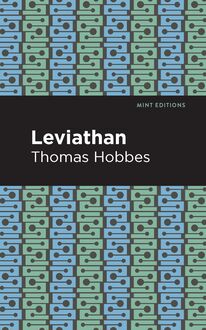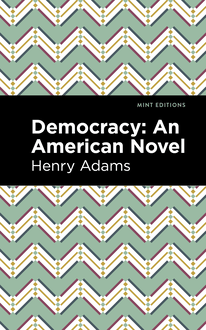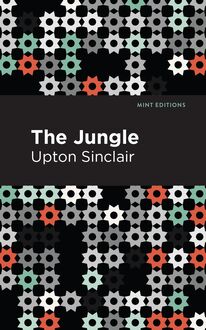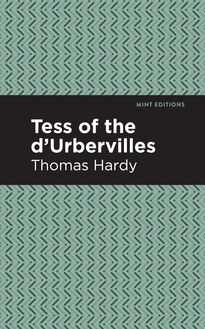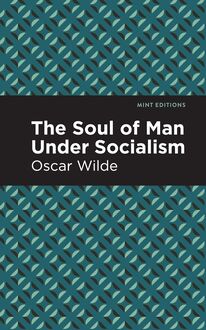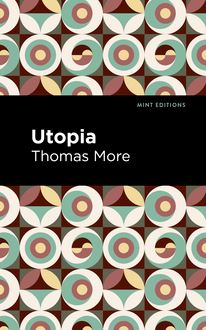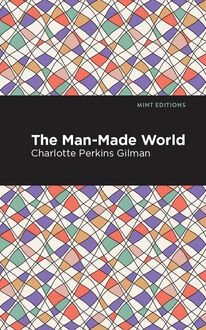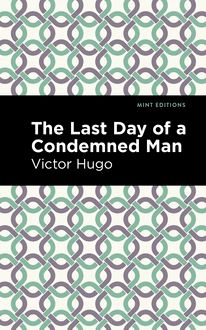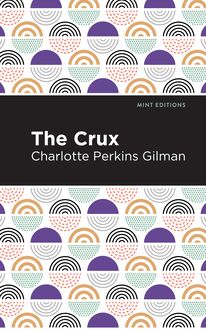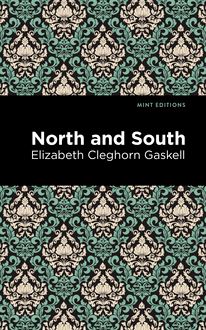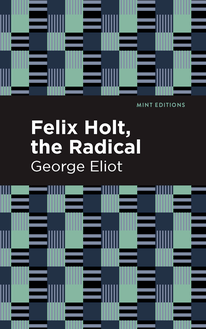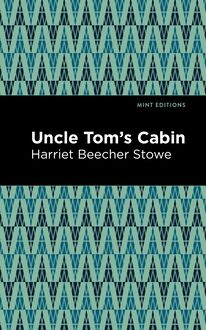-
 Univers
Univers
-
 Ebooks
Ebooks
-
 Livres audio
Livres audio
-
 Presse
Presse
-
 Podcasts
Podcasts
-
 BD
BD
-
 Documents
Documents
-
- Cours
- Révisions
- Ressources pédagogiques
- Sciences de l’éducation
- Manuels scolaires
- Langues
- Travaux de classe
- Annales de BEP
- Etudes supérieures
- Maternelle et primaire
- Fiches de lecture
- Orientation scolaire
- Méthodologie
- Corrigés de devoir
- Annales d’examens et concours
- Annales du bac
- Annales du brevet
- Rapports de stage
La lecture à portée de main
Vous pourrez modifier la taille du texte de cet ouvrage
Découvre YouScribe en t'inscrivant gratuitement
Je m'inscrisDécouvre YouScribe en t'inscrivant gratuitement
Je m'inscrisEn savoir plus
Vous pourrez modifier la taille du texte de cet ouvrage
En savoir plus

Description
Democracy: An American Novel (1880) is a novel by Henry Adams. Published anonymously, Democracy: An American Novel draws on Adams’ experience as a political journalist in Washington, DC who worked to expose corruption in American government. Although fictional, the novel is viewed as a commentary on the presidential administrations of the 1870s and political atmospheres surrounding each. “For reasons which many persons thought ridiculous, Mrs. Lightfoot Lee decided to pass the winter in Washington. She was in excellent health, but she said that the climate would do her good. In New York she had troops of friends, but she suddenly became eager to see again the very small number of those who lived on the Potomac. It was only to her closest intimates that she honestly acknowledged herself to be tortured by ennui.” Madeleine Lee, a young widow from a prominent clerical family, moves from New York to Washington, DC in search of a better life. There, she hosts a popular salon and draws the attention of several suitors. While John Carrington, an honest man from a working-class background, shows true romantic feelings, Silas P. Ratcliffe, an aspiring politician, proves dangerously attractive. As their competition grows heated, Madeleine begins losing interest in the life of fame and fortune she has pursued for herself. With a beautifully designed cover and professionally typeset manuscript, this edition of Henry Adams’ Democracy: An American Novel is a classic of American literature reimagined for modern readers.
Sujets
Informations
| Publié par | Mint Editions |
| Date de parution | 23 avril 2021 |
| Nombre de lectures | 2 |
| EAN13 | 9781513293813 |
| Langue | English |
Informations légales : prix de location à la page 0,0500€. Cette information est donnée uniquement à titre indicatif conformément à la législation en vigueur.
Extrait
Democracy
An American Novel
Henry Adams
Democracy: An American Novel was first published in 1880.
This edition published by Mint Editions 2021.
ISBN 9781513290966 | E-ISBN 9781513293813
Published by Mint Editions®
minteditionbooks.com
Publishing Director: Jennifer Newens
Design & Production: Rachel Lopez Metzger
Project Manager: Micaela Clark
Typesetting: Westchester Publishing Services
C ONTENTS I II III IV V VI VII VIII IX X XI XII XIII
I
For reasons which many persons thought ridiculous, Mrs. Lightfoot Lee decided to pass the winter in Washington. She was in excellent health, but she said that the climate would do her good. In New York she had troops of friends, but she suddenly became eager to see again the very small number of those who lived on the Potomac. It was only to her closest intimates that she honestly acknowledged herself to be tortured by ennui. Since her husband’s death, five years before, she had lost her taste for New York society; she had felt no interest in the price of stocks, and very little in the men who dealt in them; she had become serious. What was it all worth, this wilderness of men and women as monotonous as the brown stone houses they lived in? In her despair she had resorted to desperate measures. She had read philosophy in the original German, and the more she read, the more she was disheartened that so much culture should lead to nothing—nothing.
After talking of Herbert Spencer for an entire evening with a very literary transcendental commission-merchant, she could not see that her time had been better employed than when in former days she had passed it in flirting with a very agreeable young stock-broker; indeed, there was an evident proof to the contrary, for the flirtation might lead to something—had, in fact, led to marriage; while the philosophy could lead to nothing, unless it were perhaps to another evening of the same kind, because transcendental philosophers are mostly elderly men, usually married, and, when engaged in business, somewhat apt to be sleepy towards evening. Nevertheless Mrs. Lee did her best to turn her study to practical use. She plunged into philanthropy, visited prisons, inspected hospitals, read the literature of pauperism and crime, saturated herself with the statistics of vice, until her mind had nearly lost sight of virtue. At last it rose in rebellion against her, and she came to the limit of her strength. This path, too, seemed to lead nowhere. She declared that she had lost the sense of duty, and that, so far as concerned her, all the paupers and criminals in New York might henceforward rise in their majesty and manage every railway on the continent. Why should she care? What was the city to her? She could find nothing in it that seemed to demand salvation. What gave peculiar sanctity to numbers? Why were a million people, who all resembled each other, any way more interesting than one person? What aspiration could she help to put into the mind of this great million-armed monster that would make it worth her love or respect? Religion? A thousand powerful churches were doing their best, and she could see no chance for a new faith of which she was to be the inspired prophet. Ambition? High popular ideals? Passion for whatever is lofty and pure? The very words irritated her. Was she not herself devoured by ambition, and was she not now eating her heart out because she could find no one object worth a sacrifice?
Was it ambition—real ambition—or was it mere restlessness that made Mrs. Lightfoot Lee so bitter against New York and Philadelphia, Baltimore and Boston, American life in general and all life in particular? What did she want? Not social position, for she herself was an eminently respectable Philadelphian by birth; her father a famous clergyman; and her husband had been equally irreproachable, a descendant of one branch of the Virginia Lees, which had drifted to New York in search of fortune, and had found it, or enough of it to keep the young man there. His widow had her own place in society which no one disputed. Though not brighter than her neighbours, the world persisted in classing her among clever women; she had wealth, or at least enough of it to give her all that money can give by way of pleasure to a sensible woman in an American city; she had her house and her carriage; she dressed well; her table was good, and her furniture was never allowed to fall behind the latest standard of decorative art. She had travelled in Europe, and after several visits, covering some years of time, had returned home, carrying in one hand, as it were, a green-grey landscape, a remarkably pleasing specimen of Corot, and in the other some bales of Persian and Syrian rugs and embroideries, Japanese bronzes and porcelain. With this she declared Europe to be exhausted, and she frankly avowed that she was American to the tips of her fingers; she neither knew nor greatly cared whether America or Europe were best to live in; she had no violent love for either, and she had no objection to abusing both; but she meant to get all that American life had to offer, good or bad, and to drink it down to the dregs, fully determined that whatever there was in it she would have, and that whatever could be made out of it she would manufacture. “I know,” said she, “that America produces petroleum and pigs; I have seen both on the steamers; and I am told it produces silver and gold. There is choice enough for any woman.”
Yet, as has been already said, Mrs. Lee’s first experience was not a success. She soon declared that New York might represent the petroleum or the pigs, but the gold of life was not to be discovered there by her eyes.
Not but that there was variety enough; a variety of people, occupations, aims, and thoughts; but that all these, after growing to a certain height, stopped short. They found nothing to hold them up. She knew, more or less intimately, a dozen men whose fortunes ranged between one million and forty millions. What did they do with their money? What could they do with it that was different from what other men did? After all, it is absurd to spend more money than is enough to satisfy all one’s wants; it is vulgar to live in two houses in the same street, and to drive six horses abreast. Yet, after setting aside a certain income sufficient for all one’s wants, what was to be done with the rest? To let it accumulate was to own one’s failure; Mrs. Lee’s great grievance was that it did accumulate, without changing or improving the quality of its owners. To spend it in charity and public works was doubtless praiseworthy, but was it wise? Mrs. Lee had read enough political economy and pauper reports to be nearly convinced that public work should be public duty, and that great benefactions do harm as well as good.
And even supposing it spent on these objects, how could it do more than increase and perpetuate that same kind of human nature which was her great grievance? Her New York friends could not meet this question except by falling back upon their native commonplaces, which she recklessly trampled upon, averring that, much as she admired the genius of the famous traveller, Mr. Gulliver, she never had been able, since she became a widow, to accept the Brobdingnagian doctrine that he who made two blades of grass grow where only one grew before deserved better of mankind than the whole race of politicians. She would not find fault with the philosopher had he required that the grass should be of an improved quality; “but,” said she, “I cannot honestly pretend that I should be pleased to see two New York men where I now see one; the idea is too ridiculous; more than one and a half would be fatal to me.”
Then came her Boston friends, who suggested that higher education was precisely what she wanted; she should throw herself into a crusade for universities and art-schools. Mrs. Lee turned upon them with a sweet smile; “Do you know,” said she, “that we have in New York already the richest university in America, and that its only trouble has always been that it can get no scholars even by paying for them? Do you want me to go out into the streets and waylay boys? If the heathen refuse to be converted, can you give me power over the stake and the sword to compel them to come in? And suppose you can? Suppose I march all the boys in Fifth Avenue down to the university and have them all properly taught Greek and Latin, English literature, ethics, and German philosophy. What then? You do it in Boston. Now tell me honestly what comes of it. I suppose you have there a brilliant society; numbers of poets, scholars, philosophers, statesmen, all up and down Beacon Street. Your evenings must be sparkling. Your press must scintillate. How is it that we New Yorkers never hear of it? We don’t go much into your society; but when we do, it doesn’t seem so very much better than our own. You are just like the rest of us. You grow six inches high, and then you stop. Why will not somebody grow to be a tree and cast a shadow?”
The average member of New York society, although not unused to this contemptuous kind of treatment from his leaders, retaliated in his blind, common-sense way. “What does the woman want?” he said. “Is her head turned with the Tulieries and Marlborough House? Does she think herself made for a throne? Why does she not lecture for women’s rights? Why not go on the stage? If she cannot be contented like other people, what need is there for abusing us just because she feels herself no taller than we are? What does she expect to get from her sharp tongue? What does she know, any way?”
Mrs. Lee certainly knew very little. She had read voraciously and promiscuously one subject after another. Ruskin and Taine had danced merrily through her mind, hand in hand with Darwin and Stuart Mill, Gustave Droz and Algernon Swinburne. She had even laboured over the literature of her own country. She was perhaps, the only woman in New Yo
-
 Univers
Univers
-
 Ebooks
Ebooks
-
 Livres audio
Livres audio
-
 Presse
Presse
-
 Podcasts
Podcasts
-
 BD
BD
-
 Documents
Documents
-
Jeunesse
-
Littérature
-
Ressources professionnelles
-
Santé et bien-être
-
Savoirs
-
Education
-
Loisirs et hobbies
-
Art, musique et cinéma
-
Actualité et débat de société
-
Jeunesse
-
Littérature
-
Ressources professionnelles
-
Santé et bien-être
-
Savoirs
-
Education
-
Loisirs et hobbies
-
Art, musique et cinéma
-
Actualité et débat de société
-
Actualités
-
Lifestyle
-
Presse jeunesse
-
Presse professionnelle
-
Pratique
-
Presse sportive
-
Presse internationale
-
Culture & Médias
-
Action et Aventures
-
Science-fiction et Fantasy
-
Société
-
Jeunesse
-
Littérature
-
Ressources professionnelles
-
Santé et bien-être
-
Savoirs
-
Education
-
Loisirs et hobbies
-
Art, musique et cinéma
-
Actualité et débat de société
- Cours
- Révisions
- Ressources pédagogiques
- Sciences de l’éducation
- Manuels scolaires
- Langues
- Travaux de classe
- Annales de BEP
- Etudes supérieures
- Maternelle et primaire
- Fiches de lecture
- Orientation scolaire
- Méthodologie
- Corrigés de devoir
- Annales d’examens et concours
- Annales du bac
- Annales du brevet
- Rapports de stage
